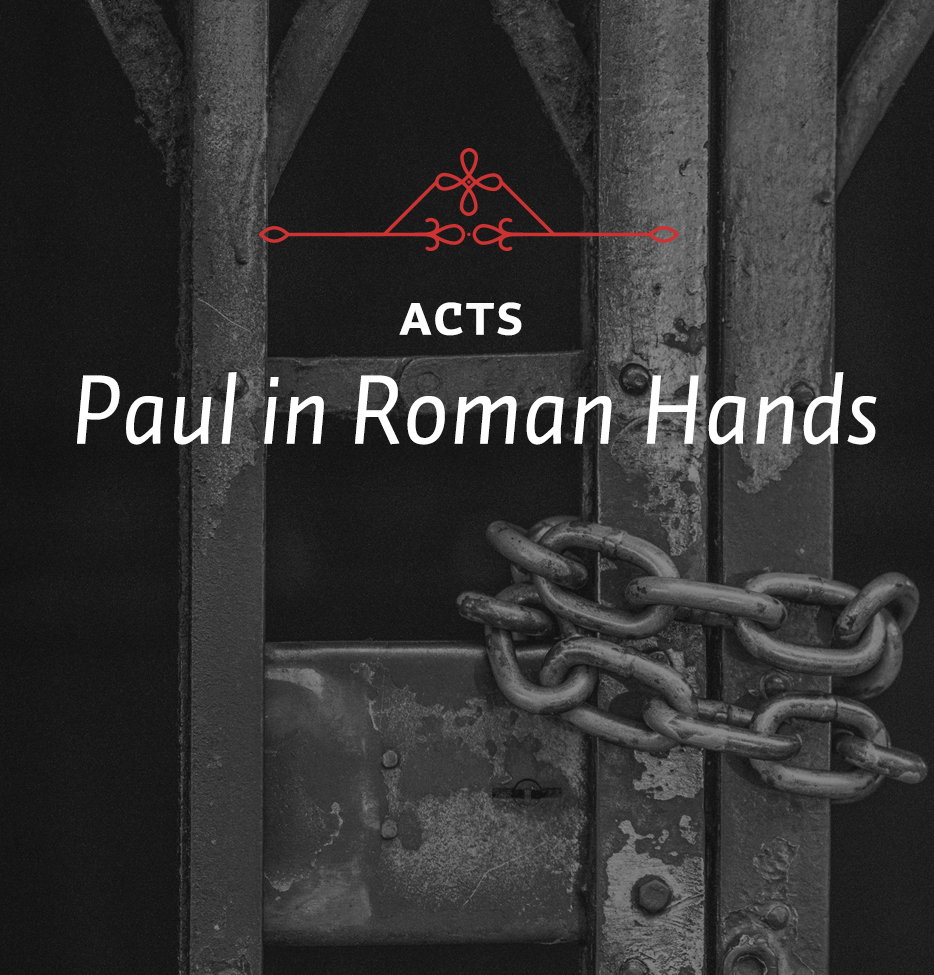We concluded yesterday’s study with the question “Why didn’t Paul recognize the high priest?” Several answers have been given. Some have suggested that Paul could not see very well. We have reason for suspecting this on other grounds because, for example, toward the end of Galatians, there is a verse which says, “See what large letters I use as I write to you with my own hand” (Gal. 6:11). This may mean only that Paul was not a good writer; he did not use small neat letters as a trained scribe would. But the verse might also mean that he could not see to write small and so wrote large and laboriously. If that is the explanation, it might be evidence that he could not see well in his failure to recognize the high priest. Paul had looked toward the Sanhedrin but, not seeing well, he could not see that it was the high priest who had commanded that he be struck.
The second explanation is that Paul was being sarcastic. That is, when he said, “I did not realize that he was the high priest,” he meant that a true high priest would never talk as he had.
The third explanation, probably the best one, is that Paul had simply been away from Jerusalem for twenty years, had never gotten to know Ananias personally, and therefore did not recognize him. We find that a bit hard to imagine today, because our leaders have their pictures in the newspapers and we see them on television all the time. But mass media did not exist then, and even though Paul had been in Pharisaic circles twenty years earlier, he would not necessarily have mingled with the higher ups, including Ananias. Whatever the case, Paul did not recognize Ananias on this occasion, and when he was rebuked, he immediately placed himself beneath the law which, of course, he was anxious to uphold.
Paul’s first attempt at a defense had been turned aside by this exchange, but he was resourceful and did something brilliant. Knowing that some of the rulers were Sadducees (they were the modernists of their day), and others were Pharisees (the conservatives), he raised a doctrinal matter which was in dispute among them. “My brothers, I am a Pharisee, the son of a Pharisee. I stand on trial because of my hope in the resurrection of the dead” (v. 6). This was a blatant pitch for the Pharisees’ support. And it worked, because the Pharisees immediately began to argue that Paul was all right after all. “We don’t find anything wrong with him,” they said. The Sadducees, being confronted by one who was both politically dangerous and, in their view, heretical, immediately took issue with the Pharisees and there was a new falling out.
The poor commander did not seem to be getting anywhere.
At this point the trial was over. But before I move on to the third of these three sections, I need to turn back to two things that emerge in this account.
1. Paul’s conscience. The first is Paul’s claim to have lived “in all good conscience to this day” (v. 1). That is a striking and bold statement. People have read that and reacted incredulously, asking, “How in the world could Paul say that? What in the world was he thinking of?” He had been in great error during his days in Judaism, as he himself admits. He had persecuted the church. He was instrumental in the death of some of its most important members, including Stephen, the first martyr. How could Paul say, “I have lived all my life up until now in good conscience”?
The answer, of course, is that Paul had indeed lived in good conscience. He was very wrong, of course; it required the intervention of the Lord Jesus Christ to show him how wrong he was. But in those early days, Paul did not think he was wrong. He fervently believed he was right. That is why he could say, when he summed up his life in Judaism, “As for legalistic righteousness, [I was] faultless” (Phil. 3:6). He wasn’t faultless in God’s sight. But so far as he knew, he had lived in good conscience.
The reason I come back to this statement is to say that while conscience is something to which we can and should listen, it is not an infallible guide to right conduct. Conscience will tell you that you should not do what is wrong and that you should do what is right, but conscience alone cannot tell you what is right or what is wrong. It is only the Bible, the written Word of God, that can teach you that. When you have the Bible and when the Holy Spirit is shining on its pages, teaching you what you should do, then conscience will tell you that you ought to do it. But if you do not have the Word of God, then, even though conscience will tell you to do the right thing, you will not know what the right thing is, and you will err, as Paul had done.






